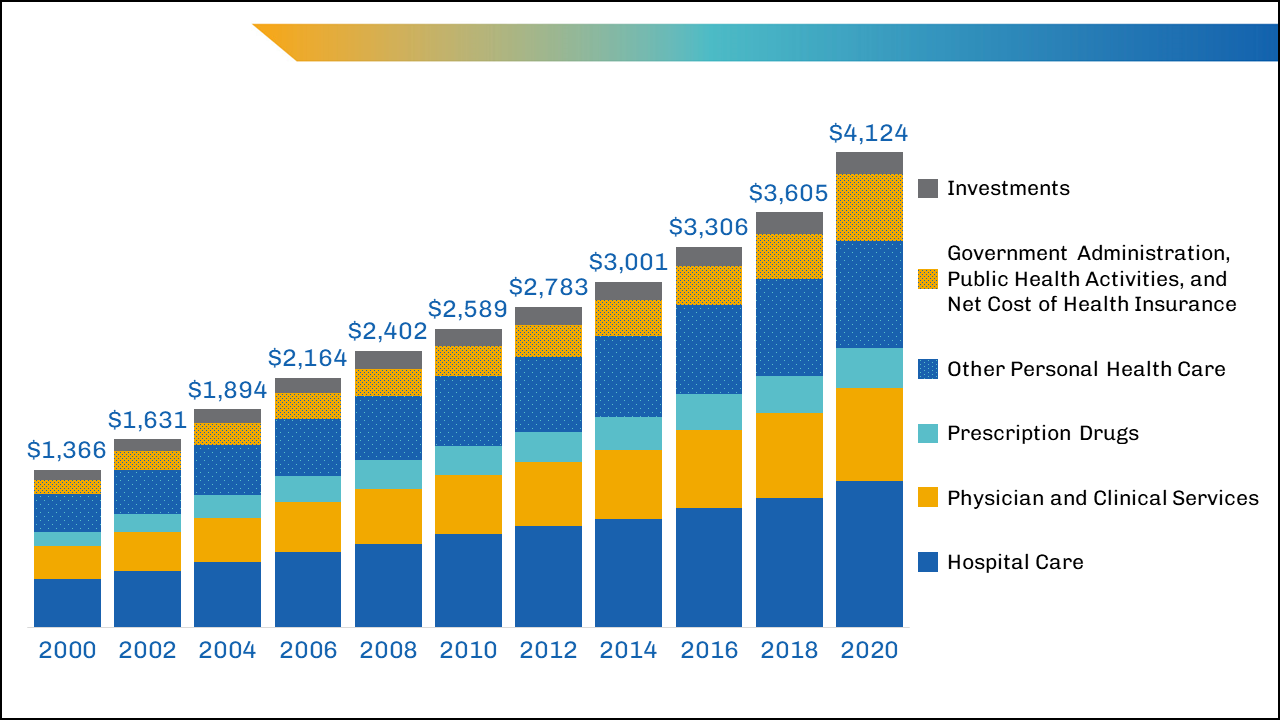Leading Healthcare RCM Techniques for Better Financial Efficiency
Wiki Article
Understanding the Duty of Health Care RCM in Enhancing Financial Efficiency and Patient Complete Satisfaction
Browsing the ins and outs of Medical care Earnings Cycle Management (RCM) is vital for attaining optimal economic performance while concurrently boosting patient satisfaction. As we check out the transformative capacity of RCM, questions concerning its critical execution and future advancements beckon, promising understandings that might redefine industry requirements and individual experiences alike.

Key Components of RCM
In the complex landscape of medical care, Revenue Cycle Management (RCM) is crucial in making certain financial stability and functional performance. A detailed RCM system includes several essential components, each playing a crucial role in the smooth monitoring of a doctor's economic procedures. Person registration and eligibility confirmation are foundational actions, guaranteeing that precise individual information is recorded and insurance protection is validated prior to solutions are rendered. This reduces the threat of insurance claim denials and increases the repayment procedure.
Cost capture is one more necessary component, including the accurate recording of services provided to individuals. It makes sure that all billable solutions are made up, thus optimizing income potential. Simultaneously, medical coding translates patient experiences right into standardized codes, which are critical for billing and regulatory compliance.
Insurance claims entry and monitoring adhere to, including the prep work and submission of insurance claims to payers. This process needs thorough attention to information to reduce errors and protect against hold-ups. Denial administration is an aggressive technique to solve and address refuted insurance claims, guarding revenue streams.
Last but not least, repayment publishing and client collections finish the cycle, ensuring payments are properly tape-recorded and impressive balances are gone after. With each other, these parts form a durable structure that supports the operational and monetary wellness of healthcare companies.
Influence On Financial Performance
Effective Income Cycle Administration (RCM) dramatically affects a medical care organization's monetary performance by optimizing capital and lowering revenue leakage. RCM incorporates the comprehensive payment and collection processes that make sure healthcare providers efficiently handle their monetary deals from client enrollment to last payment. By enhancing these procedures, companies can decrease denied insurance claims, speed up repayment cycles, and boost total monetary health.Economic performance is improved with meticulous administration of billing procedures, which includes exact coding and prompt entry of insurance claims. This decreases the chance of insurance claim denials and beings rejected, which can significantly hinder profits circulation otherwise dealt with quickly. Moreover, incorporating sophisticated innovation solutions promotes real-time tracking of insurance claims and monetary metrics, giving medical care managers with the tools essential to make enlightened critical decisions.

Enhancing Person Satisfaction
While maximizing monetary efficiency is an essential objective of Revenue Cycle Administration (RCM), it likewise plays an essential function in enhancing individual contentment. Patients today demand openness, efficiency, and accuracy in their health care communications. RCM systems improve these procedures, offering patients a smooth experience from consultation organizing to repayment. By lowering management worries, RCM allows doctor to concentrate extra on person care, which straight enhances individual satisfaction.
RCM likewise boosts individual satisfaction with effective interaction. By keeping a comprehensive database of person details, RCM promotes improved communication between individuals and healthcare providers, making certain individuals really feel informed and valued.
Strategies for Reliable RCM
Accomplishing effective Earnings Cycle Administration (RCM) requires healthcare companies to carry out a set of calculated methods that make sure economic security and operational efficiency. One important strategy is the adoption of technology-driven options, such as integrated software platforms that improve payment processes, decrease mistakes, and improve information accuracy. These systems allow real-time tracking of economic metrics, enabling for timely identification and rectification of ineffectiveness.Another technique is the standardization of processes across the income cycle. Healthcare RCM. This involves creating consistent policies for individual registration, insurance confirmation, and claims handling. By guaranteeing that all staff follow these criteria, companies can lessen inconsistencies and expedite repayment collections
Staff training and development also play an essential role in efficient RCM. Well-trained employees can successfully browse intricate billing procedures and regulations, boosting and decreasing denials cash circulation. Regular updates on plan adjustments and best practices help preserve a competent and well-informed labor force.
Future Trends in RCM
As health care organizations enhance their Profits Cycle Administration (RCM) methods with innovation and standard processes, focus is now turning towards the future patterns shaping this essential location. One significant pattern is the integration of expert system (AI) and artificial intelligence to automate intricate tasks, such as cases refining and predictive analytics. These innovations are anticipated to minimize mistakes, accelerate deal times, and supply data-driven understandings for better decision-making.
In addition, the change in the direction of value-based treatment remains to affect RCM practices - Healthcare RCM. company website Health care carriers are anticipated to progressively concentrate on person outcomes and complete satisfaction, requiring go to website RCM systems that can fit new reimbursement models. This change will certainly need more thorough data collection and analysis to properly measure and report on efficiency metrics
Interoperability is another emerging priority, as smooth information exchange in between inconsonant systems comes to be crucial. Improved interoperability will assist in even more accurate patient details sharing, minimizing management problems and enhancing the individual experience.
Final Thought
Health Care Revenue Cycle Management (RCM) dramatically influences both economic performance and individual fulfillment by maximizing invoicing procedures, making certain accurate coding, and allowing punctual insurance claims entry. Efficient RCM reduces revenue leak and speeds up money circulation, decreasing claim rejections and speeding up repayments.Navigating the ins and outs of Healthcare Income Cycle Monitoring (RCM) is important for achieving optimum financial efficiency while at the same time elevating client complete satisfaction. RCM incorporates the extensive payment and collection processes that ensure medical care suppliers successfully handle their economic transactions from person enrollment to final settlement. By minimizing administrative concerns, RCM allows healthcare companies to focus more on individual care, which straight boosts individual complete satisfaction.
By preserving a detailed data source of client information, RCM promotes enhanced communication in between clients and medical care suppliers, making sure people feel informed and valued.Healthcare Income Cycle Management (RCM) substantially affects both financial performance and person contentment by optimizing payment procedures, ensuring accurate coding, and enabling punctual claims submission.
Report this wiki page